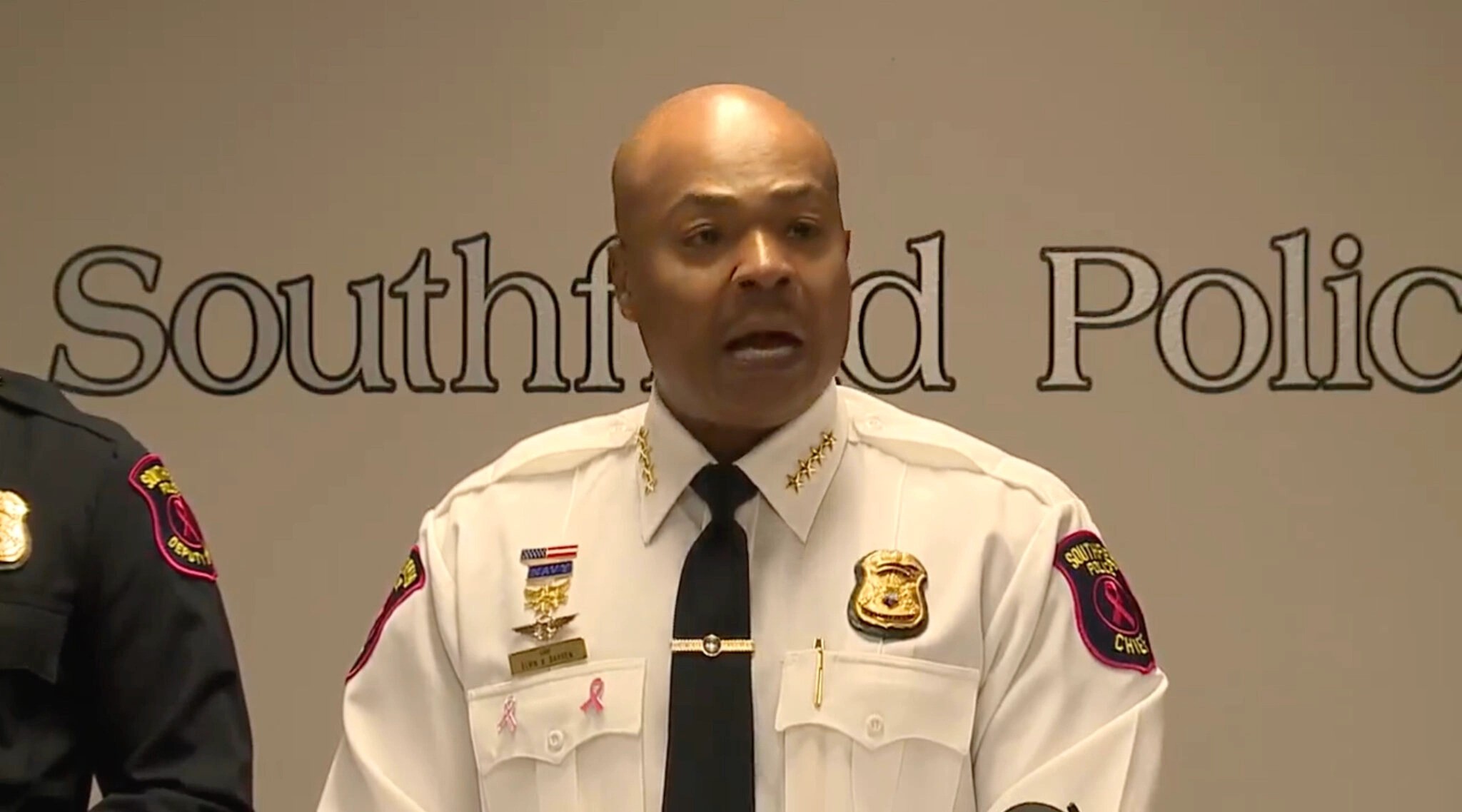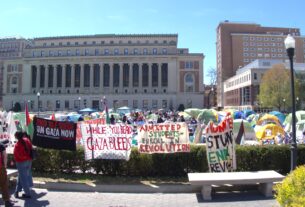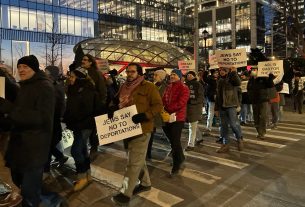ANN ARBOR, Michigan — A suspect has been arrested in the armed robbery of a University of Michigan rabbi’s home on the first night of Rosh Hashanah.
Police in the Detroit suburb of Southfield announced Monday that they had arrested an 18-year-old man in connection with the incident, which they described as a run-of-the-mill home invasion that was not motivated by antisemitism.
The incident raised widespread alarm because it took place on the Jewish New Year as well as days before the one-year anniversary of Hamas’ Oct. 7 attack on Israel. It also drew attention because the victim works at the university, which has been the site of numerous recent reports of antisemitism amid intense protests over Israel. About 25 students from the university were in Rabbi Mendy Klahr’s home at the time.
“This incident sparked a lot of concern throughout our community, particularly our Jewish community, definitely due to all the national antisemitic acts that are occurring lately,” Elvin Barren, chief of police of Southfield, Michigan, said during a press conference Monday afternoon.
“At this time, there is no evidence to suggest that this is an antisemitic act,” Barren continued. “However, you never know a person’s true intentions.”
The suspect, Southfield resident Bryson Bijon Tryce, had no criminal record, and police believe he acted alone. He was arrested late Sunday, arraigned earlier Monday and held on a $750,000 bond. Police said they identified him through a combination of text messages and security camera footage.
Tryce is believed to have entered Klahr’s Southfield home on Wednesday night, where the rabbi was hosting Jewish students for a Rosh Hashanah dinner. Klahr works for Michigan’s Jewish Resource Center, an outpost of the Orthodox group Olami. Southfield is home to a large Orthodox Jewish population and is about 40 miles from Michigan’s campus.
Armed with a handgun, the suspect allegedly entered the home from the back, where he was spotted by a female resident. He pointed the firearm at her and said, “I want everything, give me everything,” police said. The victim alerted the others in the house and the suspect fled, stealing a purse.
Tryce is charged with one count of armed robbery and one count of first-degree home invasion; authorities said they may pursue additional charges. Police charged a friend of the suspect with obstruction of justice for lying about his whereabouts when questioned.
Carolyn Normandin, director of the Michigan chapter of the Anti-Defamation League, concurred with Barren’s assessment that the robbery did not appear to be motivated by antisemitism.
“Sometimes crimes happen to Jewish people. Sometimes Jewish people are victims. Sometimes the incident is related to their characteristic of being Jewish, and sometimes not,” she said at the conference. “Not everything that happens to a Jewish person is motivated as a hate crime.”
Klahr did not immediately respond to a Jewish Telegraphic Agency request for comment. University of Michigan president Santa Ono condemned the robbery in a statement sent to the entire campus late last week. The university has been under a growing spotlight after a series of campus incidents targeting Jews — a disproportionate number of which have involved the Jewish Resource Center.
Days prior to the Oct. 7 attack last year, a student athlete was removed from the hockey team after tagging the Jewish Resource Center with vulgar graffiti; he had already apologized to the center, which accepted the apology. In recent weeks, a student who had attended Shabbat dinners at the center was the victim of a reported antisemitic attack steps away from the building — the first violent assault of a Jewish student reported on or near the campus since last Oct. 7. That was soon followed by two more violent altercations involving Jewish students nearby, although no evidence of antisemitic intent has emerged for the latter two.
“Part of it is bad luck, to be honest,” Rabbi Yitz Pierce, a colleague of Klahr’s from the Jewish Resource Center, told (JEWISH REVIEW) on Monday about the string of incidents. “But part of it is, we can’t let our guard down, and we know some of this was targeted.”
Some students involved with the Jewish Resource Center recently announced plans to form a volunteer Jewish safety group, called “shmira,” which means “protection” in Hebrew. Pierce said the students were offering escorts for other Jewish students to cross campus and would not be organizing patrols.
News of the arrest also came as the offices of Detroit’s Jewish federation, in nearby Bloomfield Township, were discovered vandalized with graffiti including the word ‘Intifada’ and red triangles, a symbol Hamas used in videos of its Oct. 7 invasion to denote Israeli targets. The symbol has since appeared frequently alongside anti-Israel graffiti.
Sitting at the central campus site of an Oct. 7 memorial display set up by other Michigan Jewish groups (the Jewish Resource Center itself declined to formally participate), Pierce said the home robbery was “doubly difficult” for the students because some of them were members of the Jewish fraternity where the member was assaulted.
“For them to be sitting there in the middle of a meal and then just have this random dude barge in the back with a gun, it scared everyone to death,” he said. “I mean, they thought it was a terrorist attack.”
Support the Jewish Telegraphic Agency
Help ensure Jewish news remains accessible to all. Your donation to the Jewish Telegraphic Agency powers the trusted journalism that has connected Jewish communities worldwide for more than 100 years. With your help, (JEWISH REVIEW) can continue to deliver vital news and insights. Donate today.




